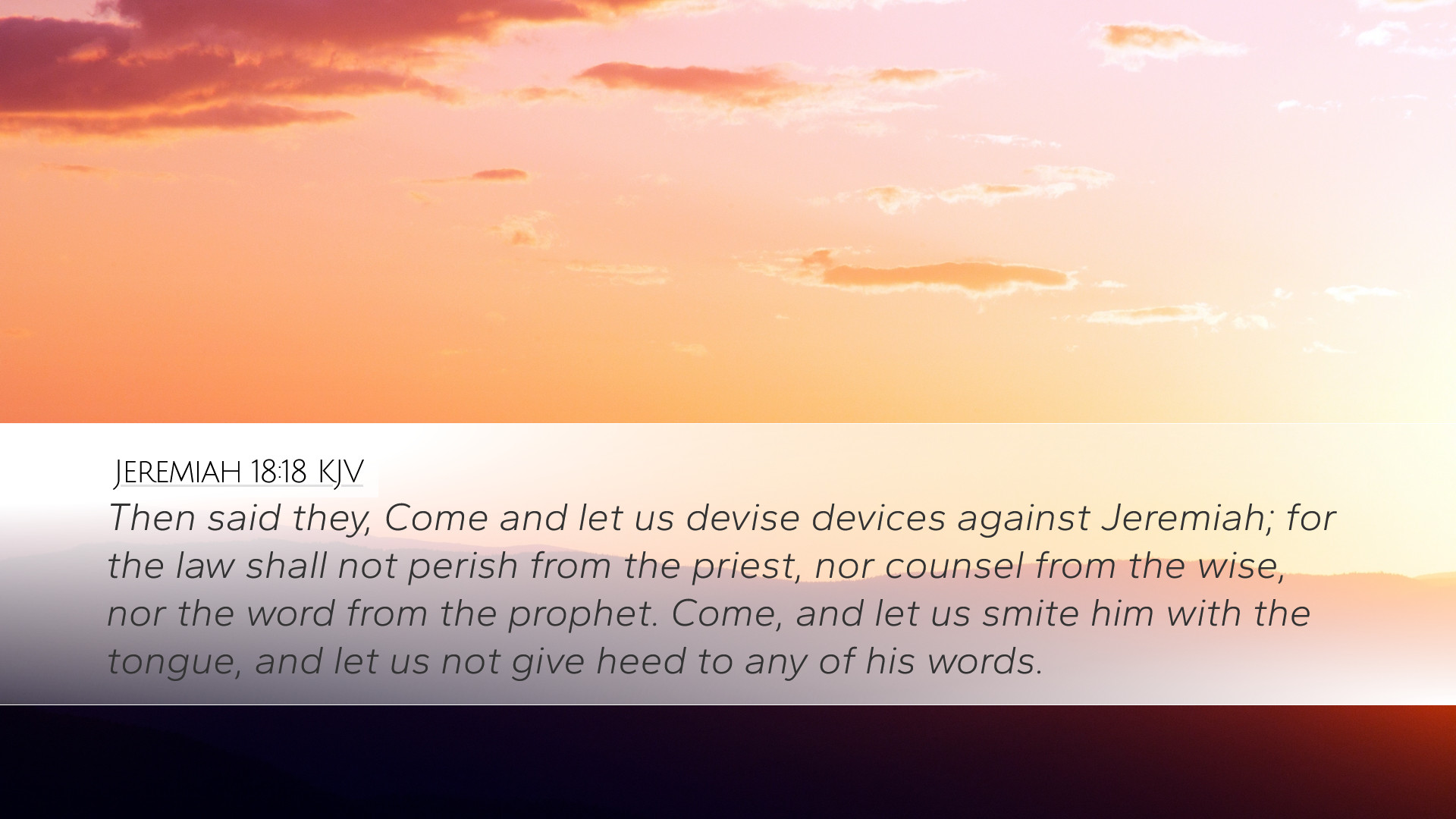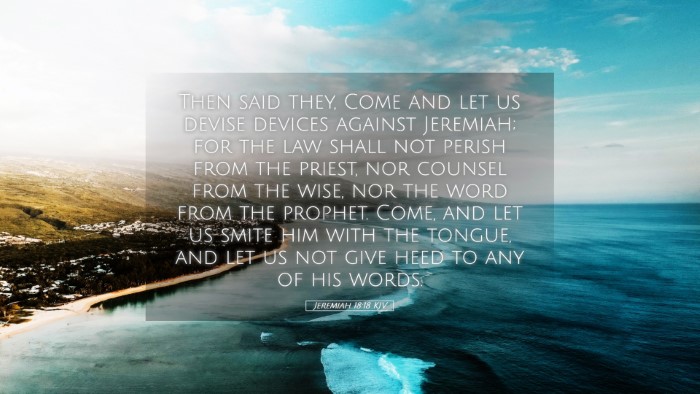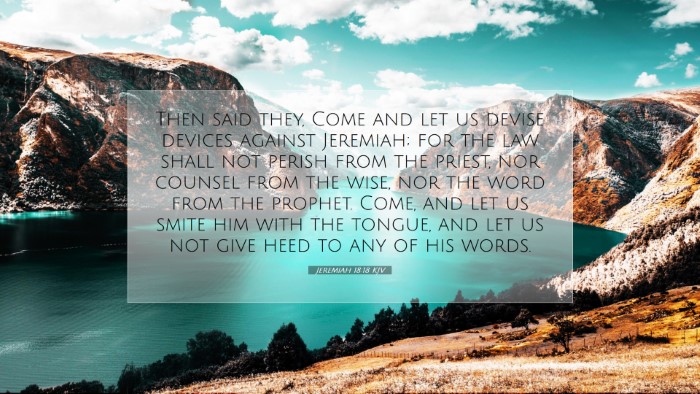Commentary on Jeremiah 18:18
Verse: "Then they said, Come, and let us devise devices against Jeremiah; for the law shall not perish from the priest, nor counsel from the wise, nor the word from the prophet: come, and let us smite him with the tongue, and let us not give heed to any of his words."
Introduction
This verse serves as a critical juncture in the book of Jeremiah, revealing the hostility faced by the prophet due to his unwavering commitment to proclaim divine truth amidst the rising tide of falsehood and opposition. The context surrounding this verse unveils the dynamics of prophetic ministry and the nature of human rebellion against God's word.
Contextual Background
Jeremiah, often referred to as the "weeping prophet," was called to deliver God's messages during a turbulent period in Judah's history, preceding the Babylonian exile. The clashing ideologies of false prophets and the priestly establishment created a hostile environment, as the religious leaders sought to protect their status and influence. The enmity toward Jeremiah highlights the broader theme of rejection that God’s true messengers face.
Commentary Insights
1. The Conspiracy Against Jeremiah
Albert Barnes notes that the phrase “Come, let us devise devices” indicates a premeditated effort to silence Jeremiah’s prophetic voice. The leaders of the people, driven by their desire for self-preservation and adherence to a misleading vision of stability, sought to undermine the prophet’s influence.
2. The Threat of Divine Judgement
Matthew Henry emphasizes the significance of the leaders’ reliance on “the law,” “the counsel,” and “the word” as they claim divine authority while plotting against God’s messenger. This contradiction serves as a poignant reminder of how religious practices can be devoid of true covenant understanding and obedience when detached from God’s genuine revelation.
3. The Role of the Prophet
Adam Clarke comments on the prophetic role as one who speaks on behalf of God amidst the crises of faith within the community. Jeremiah’s position is not merely as a mouthpiece but as a vessel of divine truth that confronts both moral decay and the social injustices of his time. His prophetic declarations challenge the complacency of the people and call them to repent.
4. The Verbal Assaults
The phrase “smite him with the tongue” refers to slander and verbal abuse directed towards Jeremiah. This tactic is indicative of the attempt to discredit him in the eyes of the people. Matthew Henry refers to the way in which spiritual leaders can often manipulate speech to fulfill their agendas, thereby exemplifying a profound understanding of human nature and social dynamics.
5. The Nature of False Security
Barnes asserts that the assertion that “the law shall not perish” reflects a false sense of security. The leaders were convinced of their inviolability due to their adherence to tradition, yet they failed to realize that true faith must align with prophetic truth and righteousness—a reality captured throughout the prophetic literature.
6. The Consequence of Rejection
Henry points out that by rejecting God’s word delivered through the prophet, the nation sealed its fate. The resistance to divine correction often leads to eventual judgment, a theme that resonates throughout the larger narrative of Scripture. The rejection manifests not only in personal disobedience but in collective societal deterioration.
Applications for Pastors and Theologians
- Understanding Prophetic Ministry: Modern pastors are called to recognize the challenges inherent in prophetic ministry. Just as Jeremiah faced opposition, so too must contemporary leaders be prepared for the challenges that arise when proclaiming uncomfortable truths.
- Valuing God's Word: The emphasis in this passage on “the law,” “counsel,” and “the word” encourages spiritual leaders to prioritize scriptural fidelity in their teachings and pastoral care.
- Responding to Opposition: The wisdom in how Jeremiah handled his detractors can inform church leaders on appropriate responses to criticism and opposition, fostering resilience in faith.
- Encouraging Repentance: The message of repentance is critical; thus, churches should remain steadfast in calling communities back to genuine faithfulness rather than comfort-seeking compromise.
Conclusion
Jeremiah 18:18 is not merely a historical account but a timeless reflection on the nature of human rebellion, the significance of divine truth, and the complexities associated with prophetic ministry. The teachings from this passage are relevant to today’s church, prompting self-examination in light of Scripture and encouraging an unwavering commitment to proclaim God’s truth amidst opposition.


